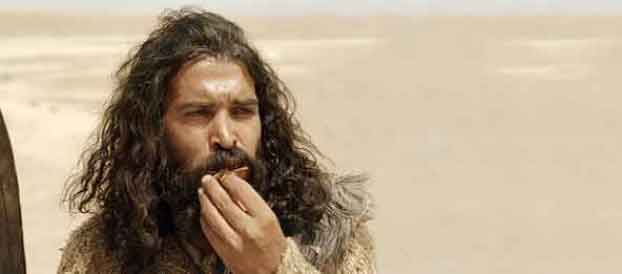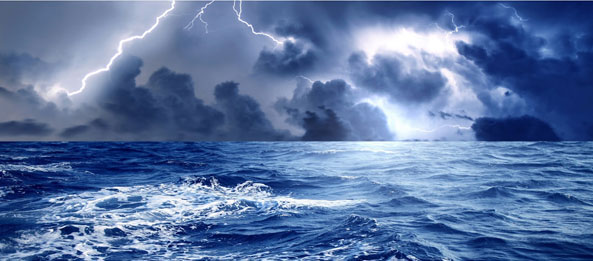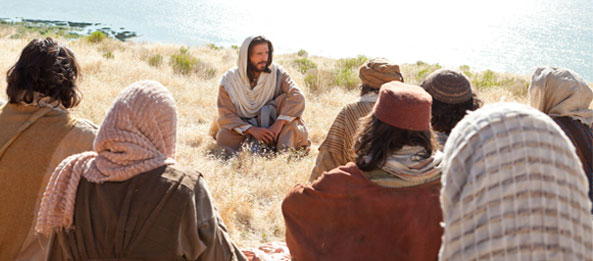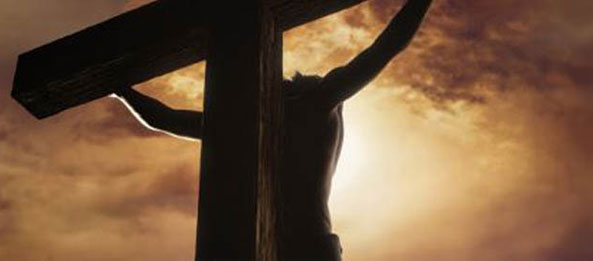A Voice in the Desert
“Jews getting baptized?” queried Joshua, his eyebrows raised in surprise. “Yes, lots from all over Judea,” said Zaccheus, “And not just common folk either. You remember that educated guy from Alexandria, Apollos? I saw him too!” “But we’re Jews, Zach! Why do we need to be baptized? We are God’s people!” “Well you should hear the preacher. He said some interesting stuff Josh. He said the Messiah is among us, that his rule is about to begin, and that when it does, God’s Spirit is going to come on all of us. He’s baptizing anyone who wants a part in it.” Joshua stared back at Zaccheus trying to read his mind, “And you believe it?” “Maybe,” said Zaccheus, “We need the Messiah now Josh. I’m tired of these Romans.” Joshua thought for a moment, “Now you’re talking Zach. Anything but Rome! Perhaps I should hear this preacher for myself. What did you say his name was?” “He’s called John. He looks like a Nazirite; everyone says he’s a prophet.” “If he gets this right we won’t question it!” snapped Joshua, “Let’s go!” John the Baptist had a massive following. His ministry affected Jews all over the Roman Empire. Even after Jesus had come and gone, Paul was still finding disciples of John moving about and spreading his message. He did not appeal just to commoners like fisherman; his teaching impacted scholars and government officials too. This calls for a rethink about who John really was. Movies portray him as a wild reclusive type living in the desert, someone who could speak for God but was useless for anything else. But for John to draw such a following and to persuade the educated in society, he must have had something intelligent to say, and he must have been the kind of character that disciples wanted to emulate. And as we look deeper into the things John said, we do find a man with a phenomenal vision, a man who saw something from a distance and wanted to get people there. We also see an individual that perceived and understood many things that Christ would later teach without having heard it from Jesus for himself.
In Matthew 3:2 we find John’s main message, “Repent, for the kingdom of heaven is near.” Here Matthew has put in John’s mouth the exact same words that he later put in Jesus’ mouth (4.17). What is Matthew doing? He is emphasizing the fact that John preached the same message as Christ. They both preached about the kingdom of heaven, and they both claimed it was now very near. John may not have understood the kingdom to the extent that Christ did, but the amazing thing is that he got it right before Jesus preached it!
John’s preaching also reveals that he was expecting an age of the Spirit. He kept telling everyone that he could only baptize with water, but the coming Messiah would baptize with the Holy Spirit (Mt 3.11). This is awesome! John’s big hope and desire was not for people to be immersed in water, but for everyone to be immersed in the Spirit! This is what drove him to prepare people with water. John knew something about walking in the Spirit because he had been filled with the Spirit at his birth (Lk 1.15). But now he desired that all of God’s people walk in the Spirit. When John called people to repentance, he was preparing them for a Messianic kingdom where everyone was immersed in the Holy Spirit and walking in power.
For John, recognizing the Messiah was a matter of seeing who was empowered to baptize with the Spirit. God had said to John that “the man on whom you see the Spirit come down and remain,” this is the one “who will baptize with the Holy Spirit” (Jn 1: 32-34).
It’s worth noting the vivid connection John makes between the water he uses and the Spirit Jesus will use. Somehow the church has missed it. It is obvious that for John the water he used was not just a matter of ceremonial cleansing. John was not trying to restore Jews to some original condition, he was calling them to a new condition; he was preparing them for an age of the Messiah where people were immersed in the Spirit. For John, the water he used was just a symbol of the Spirit to come. He was in a sense saying ‘I’m a no body, I can only baptize with water, but the coming Messiah will give you the real thing, he will baptize with the Holy Spirit.” The church for centuries has separated water and Spirit baptisms as if they are different things, but this is not how John saw it. For John, water was the symbol and the Spirit was the real thing!
Once Jesus poured the Holy Spirit out at Pentecost, Spirit baptism was freely available. But the key to it was immersion into Christ. If you were baptized into Christ you were immersed in the Spirit and if you were immersed in the Spirit you were baptized into Christ. Water baptism was a public testimony that you were being immersed into Christ and the Spirit … or had been. This is clearly shown in Acts 19.1-7 where disciples of John are baptized into Christ and immediately the Spirit came upon them. And then in Acts 10.44-47 the Spirit comes on people who have not been baptized in water and Peter then says “Can anyone keep these people from being baptized with water? They have received the Holy Spirit just as we have.” Sometimes immersion into Christ and his Spirit came first and a public testimony with water followed, and sometimes the water baptism came first and immersion into Christ and his Spirit followed. It does not matter if the testimony with water comes before or after, as long as real immersion into Christ and his Spirit happens. Of course John had already been executed when his disciples were being baptized in the Spirit, and it’s a pity he could not be there to see his great hope unfolding.
But John was not just a man with vision, he also demonstrated great humility. When everyone was trying to get him to say something great about himself, he just replied, “I am a voice of one calling in the desert” (Jn 1.23). And when his men were concerned that Jesus’ disciples were starting to baptize more than they, he said, “He must become greater; I must become less” (Jn 3.30).
In recognition of John the Baptist, Jesus said “All the prophets and the Law prophesied until John” (Mt 11.13). Here Jesus was declaring that John was the last prophet of the Old Testament kind. All of the Old Testament prophets spoke of the coming Messiah. Now John stood at the end of this long line of prophets pointing his finger quite literally at the Messiah they had all spoken of. This is why Jesus said “He is the Elijah who was to come” (11.14). Elijah was an archetype of the prophets. Jesus was saying that John had come with the archetypical ministry as Elijah – a ministry that summed up the prophets by pointing out the Messiah and his kingdom. What a picture! As John and Jesus stood together in the waters of the Jordan, an Old Covenant prophet was acknowledging the New Covenant King. And that’s when the Spirit came. John brought closure to the Old and Jesus ushered in the New.







